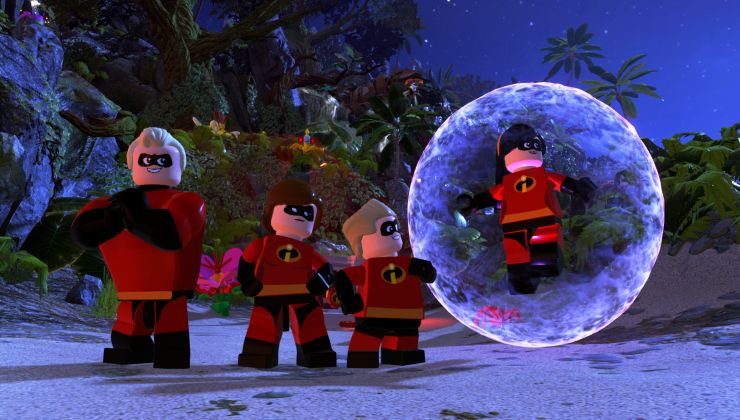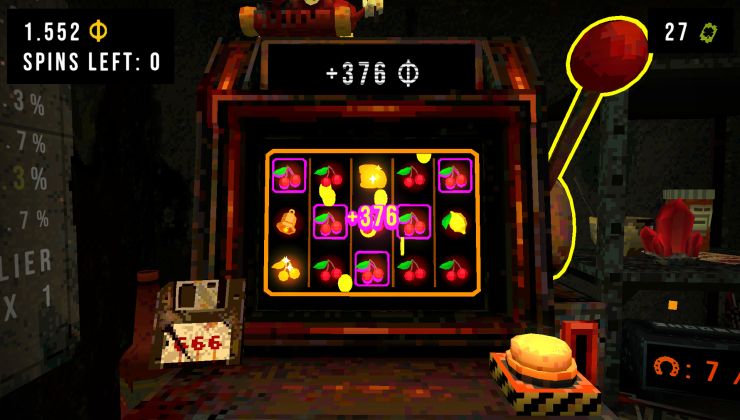What initially seemed like a really promising idea, to give you gaming on any device and wherever you are has turned into something of a let-down overall.
This will no doubt get me some flak from Stadia stans, but let's keep in mind I was originally totally sold on the idea of Stadia. I have a Founders pack and I used it almost daily for quite some time. That time quickly lessened, and eventually became none at all. I can't imagine I am alone in that either.
At the two year point, what did Google do to celebrate Stadia? Close to nothing. On Reddit the Stadia team went over some numbers we already knew like the amount of games available and a few that added special Stadia features. There was also a sale on their store, along with a reasonable discount on the Stadia Premiere Edition (£19.99, down from £69.99), which you can easily put down to them wanting to get rid of stock since it comes with their older Chromecast Ultra. On the subject of the future, they only gave some vagueness:
- Continuing feature experiments with the goal of making it easier for players to get into games and try Stadia for themselves. We’re still learning from input provided by our community and appreciate all the constructive feedback we receive from you!
- Expanding all categories of games content - not just more games overall, but new types of games that we’ve heard players ask for, including genres like online action games, open world titles, plus free games, trials and demos.
- Bringing Stadia to more devices and making it easier to access, purchase, and play games by yourself or with friends.
No player numbers, no sales numbers, absolutely no show of strength.
Barely any effort to mark two years, unless you count talking very briefly to six (yes, a whole six) customers who picked up the Founders pack. Really pushing the boat out there!
It's hard to be excited or even just a bit interested in a service that Google don't seem to know what to do with. It reportedly missed all their user goals by hundreds of thousands, and they shut down Stadia Games & Entertainment before even giving it any time in the spotlight at all. We were supposed to get first-party games that took advantage of the cloud, to do things you couldn't really do locally and we're likely to never see anything like that on Stadia.
The huge problem is that NVIDIA GeForce NOW and Microsoft's Xbox Cloud Gaming both completely destroy it when it comes to price vs value. Even though GeForce NOW still feels a bit too disconnected, since it relies on whatever launchers games use and all the logins that come with it and Microsoft need to improve the latency / input quality of their offering, Stadia will basically never match up to either on overall value. You've also got Netflix expanding into cloud gaming, and Amazon with Luna. The sharks are circling and Stadia is bleeding in the middle.
When thinking on how Stadia operates, it just really doesn't make sense, especially now with the hot competition. Full price per-game to basically rent your games from Google, with an additional extra monthly sub on top to get 4K and access to a few games per month if you keep that subscription up, to completely disappear if they do shut down the consumer store side of things. When elsewhere you can either pay monthly to access your existing games (GeForce NOW), or pay monthly to access a big library (Xbox / Luna). At least with the other options, you either still have local access or you know you're paying for a more Netflix-like model.
Even Stadia as a service for bigger games has been left in the dust often, with some games leaving patches out for weeks and multiple games released locked to 30FPS. Even developers that are on it don't seem to care enough. Google don't even put Stadia at the front of anything they do, like how their newer Chromecast with Google TV took nearly a year to support Stadia.
Specifically when thinking about the Linux desktop, some original thoughts were that since Stadia was using Debian Linux and the Vulkan API, that we might see some cross-over of ports but that never really materialised either. The majority ended up just sticking to the Stadia ecosystem.
Where does Stadia go from here? Well, we already know they're marketing their tech as a white-label solution to studios outside of the Stadia Store, so that will likely pull in some companies but eventually I do expect the consumer side of Stadia itself to die-off.
The sad thing is that Stadia still runs rings around the competition in terms of the technology and performance of the games. The UX is so much better than Geforce Now and Xbox Cloud Gaming too. The competition just wins on the games available.Yup, agreed, Stadia is still the most streamlined approach.
I actually think what held it back from attracting game publishers is linux and vulkan. It probably would have had a better time attracting big publishers with a Windows based solution since the effort of putting games on the service would have been lower. I expect to get a lot of flak from linux stans for that opinion but it needs saying.Not sure why anyone would disagree really, the technical side of that is 100% true. Porting to a new platform and API takes a lot more time than adjusting a Windows release to talk to Stadia services.
Unless they decide to terminate the service I see myself using it for the years to come 🤷
Plus, a number of games released lately run very bad, others are still running at 30 fps or less and no sign or word they're gonna upgrade the hardware.
They were talking about adding 100 games this year, not much time left and we're nowhere near that number. (I stand corrected about this, they did released about 90 already)
I also hoped that they will improve the latency by adding new closer servers, didn't happened, they're the same as two years ago. Ironically GeforceNow did exactly that, and I have much better latency with them. (Stadia 30ms, GFN 15ms)
This is the first month when I stopped paying, I might revisit next year, but unless they add a new server or at least improve the quality of their ports...meh.
(And the quality of their new ports is the most puzzling, I know they can do better, Destiny 2 or Division2 are pretty demanding games running excellent.)
Edit: Oh yeah, and since I was talking about that, this is how good Destiny 2 runs:
https://www.youtube.com/watch?v=pGYdPHiboG4&ab_channel=airspeedmph [External Link]
And this is how crappy Control runs:
https://www.youtube.com/watch?v=GBQX8C3SvJM&ab_channel=airspeedmph [External Link]
Last edited by dubigrasu on 23 Nov 2021 at 3:29 am UTC
I actually think what held it back from attracting game publishers is linux and vulkan. It probably would have had a better time attracting big publishers with a Windows based solution since the effort of putting games on the service would have been lower. I expect to get a lot of flak from linux stans for that opinion but it needs saying.Not sure why anyone would disagree really, the technical side of that is 100% true. Porting to a new platform and API takes a lot more time than adjusting a Windows release to talk to Stadia services.
It was the same thing that held back Steam Machines when they were first released. Valve learned from that and is relying heavily on Proton to make sure Steam Decks can run Windows games. It seems like Google is kind of living in a bubble on this. They need to sweeten the pot somehow even if it means sharing revenue. Offer Steam or GOG keys for games people buy on Stadia. That way customers are at least guaranteed they'll still own their games if Stadia vanishes.
As for GeForce Now, aside from the founders subscription (60$/year), it really is expensive, imo, for games I already own and I can't play my whole Steam catalogue, on top of that. The basic sub is 125$/year and the new RTX 3080 tier is through the roof with a 250$/year. I got absolutely no interest in that, I'll use the Steam Link app, instead and gain access to my whole Steam catalogue, at the same time. I really hoped Google would up it's game, but it seems the contrary. They pulled the plug way too fast.
As for the 100 games in 2021:
"Google has added 93 games to Stadia since the start of this year, with just six weeks left to meet its promise of at least 100 titles added during the calendar year 2021."
Source:
https://9to5google.com/2021/11/19/stadia-nine-to-five-game-changelog/ [External Link]
A little news about white label Stadia:
https://9to5google.com/2021/10/20/batman-arkham-knight-white-label-stadia-att/ [External Link]
But still, there is an overdue hardware upgrade that we may never see and Stadia as a whole is losing momentum, big time.
Last edited by Mohandevir on 22 Nov 2021 at 4:47 pm UTC
"Google has added 93 games to Stadia since the start of this year, with just six weeks left to meet its promise of at least 100 titles added during the calendar year 2021."They did!?
Source:
https://9to5google.com/2021/11/19/stadia-nine-to-five-game-changelog/ [External Link]
If so, then I didn't payed much attention, although I do watch their announcements and I'm even subscribed to their YT channel.
Or maybe they released so much shovelware that my mind didn't registered it.
"Google has added 93 games to Stadia since the start of this year, with just six weeks left to meet its promise of at least 100 titles added during the calendar year 2021."They did!?
Source:
https://9to5google.com/2021/11/19/stadia-nine-to-five-game-changelog/ [External Link]
If so, then I didn't payed much attention, although I do watch their announcements and I'm even subscribed to their YT channel.
Or maybe they released so much shovelware that my mind didn't registered it.
Sure thing, it's not all games I'm interrested in either, but I don't think they may be classified as "shovelwares". All Stadia games seem curated and lots of them are well known indie titles.
Last edited by Mohandevir on 22 Nov 2021 at 4:53 pm UTC
I actually think what held it back from attracting game publishers is linux and vulkan. It probably would have had a better time attracting big publishers with a Windows based solution since the effort of putting games on the service would have been lower
Effort may have been lower, but I doubt it would scale in terms of cost. Or, frankly, performance, although that's just me extrapolating from how poorly Citrix and Horizon solutions run Windows desktops at scale on shared hardware (they generally don't).
Indeed, Linux (and the Stadia framework built upon it) might be a contributing factor to how Google get such low latency generally.
Pure guesswork of course, but there must be reasons they went Linux despite most games being focussed on Windows.
I actually think what held it back from attracting game publishers is linux and vulkan. It probably would have had a better time attracting big publishers with a Windows based solution since the effort of putting games on the service would have been lower
Effort may have been lower, but I doubt it would scale in terms of cost. Or, frankly, performance, although that's just me extrapolating from how poorly Citrix and Horizon solutions run Windows desktops at scale on shared hardware (they generally don't).
Indeed, Linux (and the Stadia framework built upon it) might be a contributing factor to how Google get such low latency generally.
Pure guesswork of course, but there must be reasons they went Linux despite most games being focussed on Windows.
The first reason that comes to my mind is Windows... When you want to use Windows, you have to deal with the Windows UI and all the bumps that comes with it. GeForce Now shows these quite clearly. It feels patched no matter what they do, because of Windows, there are no workarounds. Stadia feels completely integrated with a custom UI that answers the needs of their service. It's a console experience, in the cloud.
Last edited by Mohandevir on 22 Nov 2021 at 5:49 pm UTC
But, is it just me or did their hit rate on those side gigs used to be higher back in the day? When was the last time they came out with a Google Maps?
Google's body count is pretty high, and always has been. Stadia is just one of their more prominent failures.
https://killedbygoogle.com/ [External Link]
Nvidia is ok, but the virtual desktop is really annoying, always having to log in, copy/paste not working, wrong keyboard layout.
I'd happily pay valve 12 bucks a month if I could use it to play my whole library without the hassle of nvidia.
I think something like that would be the next logical thing if valve does not want to fall behind.
And ye, not an option for competitive players, but for casuals like me good enough. If I had something like that I would not have bought a new gaming PC. That's a lot of month until it pays off buying my own gaming rig.
I'd use some silent mini PC instead of my 24kg tower with passive heatpipe cooling, save space and would not have big invests every few years.
I'd happily pay valve 12 bucks a month if I could use it to play my whole library without the hassle of nvidia.
That is honestly the only way I can see cloud gaming to become a desirable thing - as an premium add-on service to stream the games you already own anyway. That way, you can play games on your PC when at home, and on your tablet/phone when travelling. Best of both worlds.
But other than that, I have no desire to rent my games, or have to rely on a service that might or might not close shop tomorrow morning. Or clog my bandwidth with multiple GB per hour just to stream a game that my PC can easily run locally.
And ye, not an option for competitive players, but for casuals like me good enough. If I had something like that I would not have bought a new gaming PC. That's a lot of month until it pays off buying my own gaming rig.
Honestly, the save-on-hardware argument doesn't hold much merit, particularly not for more casual players that don't need (multiple) high-end GPUs. Unless you really use your PC for gaming ONLY and can argue not to need a PC at all anymore when streaming games, the difference in price between a pure office PC and a casual gaming PC is actually pretty marginal.
This is actually why I still fail to understand the economics of game-streaming. Casual players don't save enough on the hardware to make the streaming subscription the cheaper choice in the long run, and hardcore players typically don't want any extra lag when playing games, so they will have to buy high-end hardware anyway.
Casual players don't save enough on the hardware to make the streaming subscription the cheaper choice in the long run, and hardcore players typically don't want any extra lag when playing games, so they will have to buy high-end hardware anyway.
If you ever come by high-end hardware at a fair price, please let us know. The chip shortage is making cloud gaming attractive and there is no forseeable ending to it, yet. Last week, Nvidia speculated not before 2023, at minimum.
Last edited by Mohandevir on 22 Nov 2021 at 6:55 pm UTC
The chip shortage is making cloud gaming attractive and there is no forseeable ending to it, yet.Not really.
If a lot of people picked that up, the cloud gaming providers would themselves have to scale up and would be the ones facing the shortage.











 How to setup OpenMW for modern Morrowind on Linux / SteamOS and Steam Deck
How to setup OpenMW for modern Morrowind on Linux / SteamOS and Steam Deck How to install Hollow Knight: Silksong mods on Linux, SteamOS and Steam Deck
How to install Hollow Knight: Silksong mods on Linux, SteamOS and Steam Deck